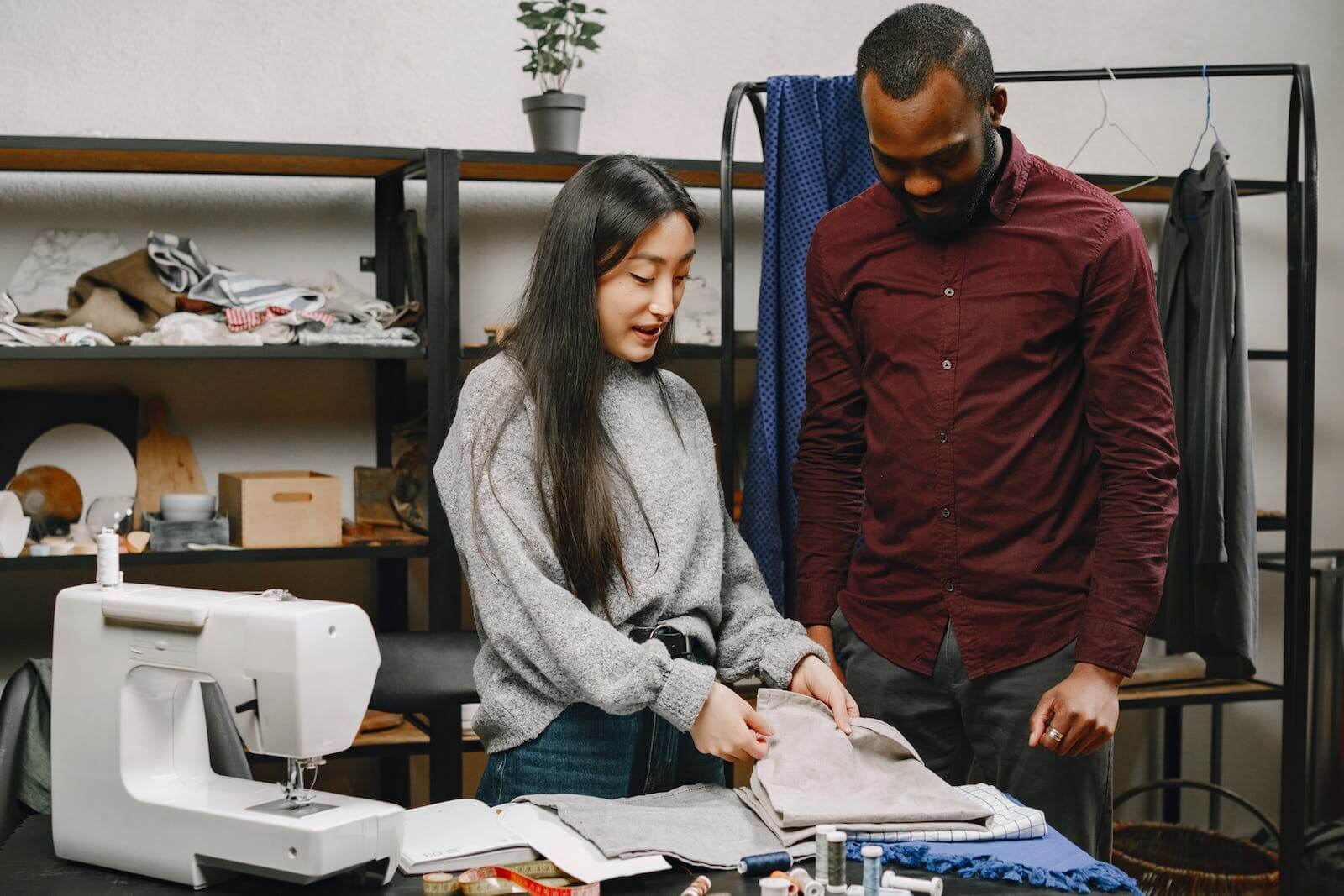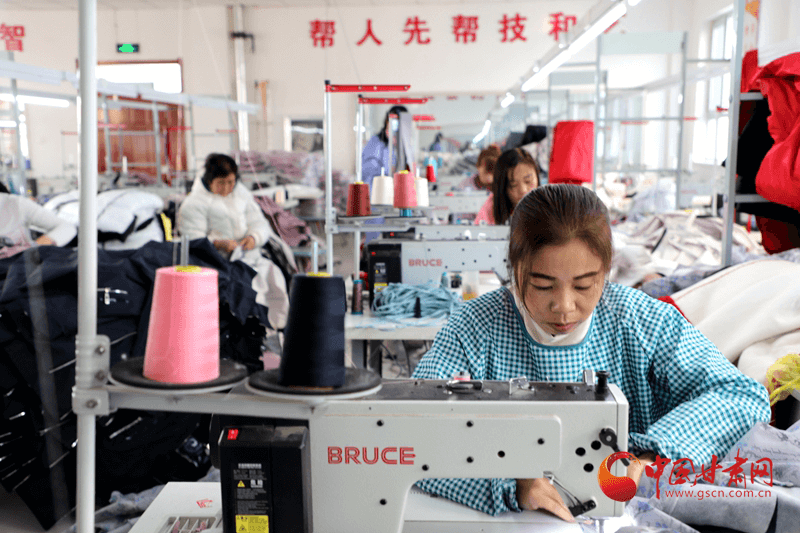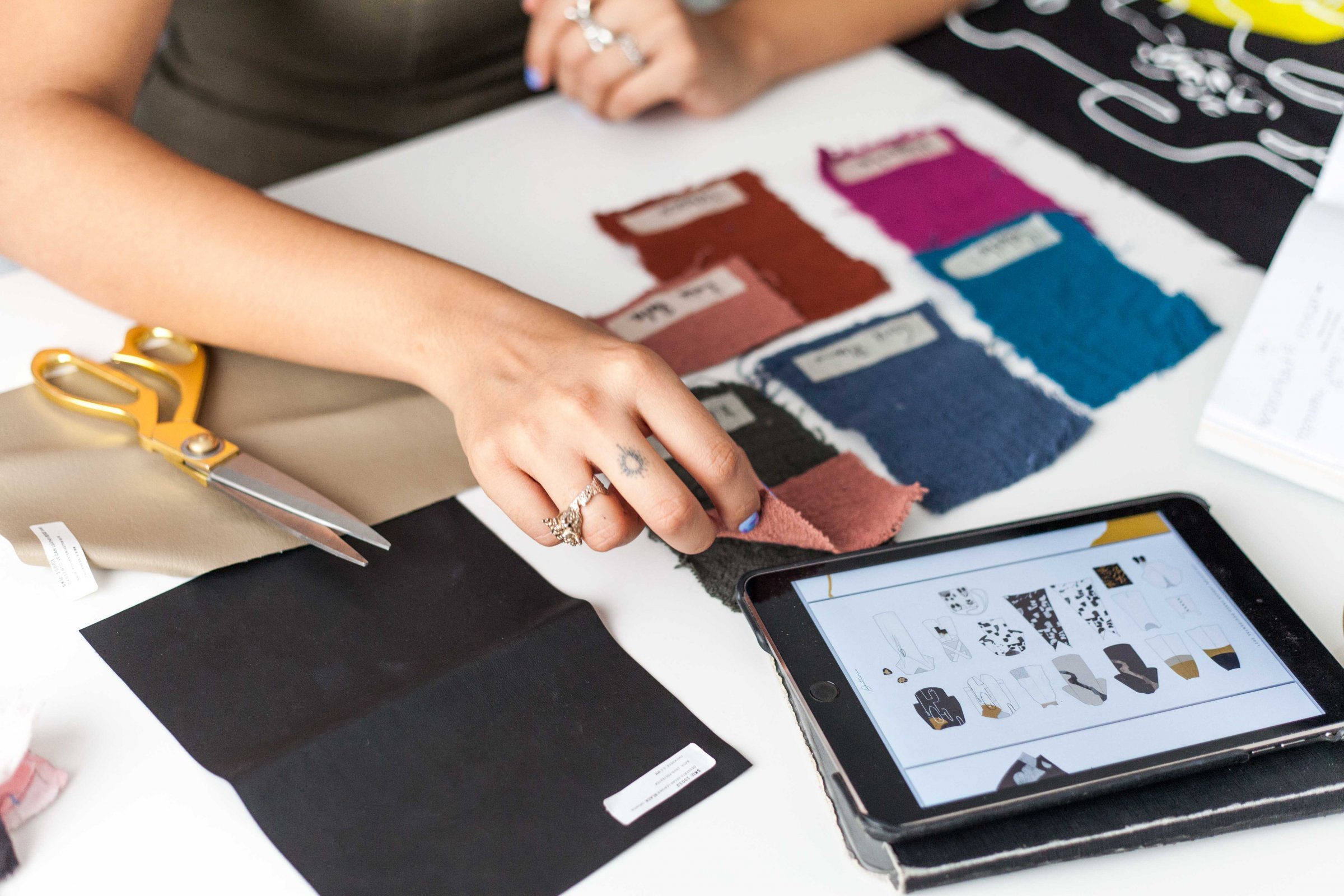Clothing manufacturing industry can be confusing, especially when it comes to all the acronyms. But don’t worry, we’re here to help!
If you’re a new clothing brand trying to navigate the supply chain, we can break down the different types of clothing manufacturers to get you started.
Clothing manufacturers provide a variety of services, including turning raw materials like fabric into accurately styled and sized garments. The process of producing a piece of clothing is actually much more complex than you might initially think.
Let’s explore the different types of garment factories together!
Why there are different types of clothing manufacturers?
The clothing production process involves turning raw materials, such as fabric, into accurately styled and sized garments. The process is much more complex than you might initially think. Not all clothing factory is in charge of the whole production process. That’s why there are different types of clothing manufacturers.

CMT manufacturer
What is CMT manufacturer?
CMT stands for “cut, make, trim”. A CMT clothing manufacturer usually takes care of cutting the fabric, sewing the garment, and adding finishing touches such as buttons and zippers. The clothing brand supplies the fabric and other materials, and the CMT manufacturer takes care of the rest to produce the final product.
What are the pros & cons of working with CMT manufacturer?
Pros of working with a CMT manufacturer include lower costs since the clothing brand provides the fabric and materials, as well as greater flexibility in the design and production process.
Cons may include longer production times and a potentially larger workload for the clothing brand in terms of sourcing and providing materials.
Recommended: for established brands with a purchasing team

FPP manufacturer
What is FPP manufacturer?
Well, FPP stands for “full package production”. And basically, an FPP clothing manufacturer takes care of everything from finding the right fabric to packing up the final product. They handle everything from pattern-making to quality control.
Are there any good things and bad things about working with an FPP manufacturer?
There are definitely some pros to working with an FPP manufacturer. For one, you get a more streamlined production process, which means faster production times. Plus, you don’t have to worry about sourcing materials, which can take a lot of work off your plate as a clothing brand.
On the flip side, there are some cons to consider. Working with an FPP manufacturer may be more expensive since they’re responsible for sourcing materials. You may also have less flexibility in the design and production process.
Overall, we’d recommend FPP manufacturers for established brands with bigger budgets and start-up brands who have limited budgets.
Working with FPP factory, start-up brands might cost more money but the production time will be greatly reduced which helps you to launch your clothing line faster and get funds back after the sale. More important is you do not need to take the risk of getting the bad quality of the fabric.

What is OEM clothing manufacturer?
OEM stands for “original equipment manufacturer”. An OEM clothing manufacturer is a company that produces clothing for other brands, often under a white label or private label agreement. In other words, the clothing manufacturer designs and produces clothing according to the specifications of the brand that will sell the clothing. The brand can then sell the clothing under their own label, without having to invest in the production process themselves. This can be a good option for brands that want to focus on marketing and sales, rather than production.
Is there any difference between OEM manufacturers and CMT manufacturers and FPP manufacturers?
An OEM manufacturer designs and produces clothing according to the specifications of the brand that will sell the clothing. On the other hand, a CMT manufacturer takes care of cutting the fabric, sewing the garment, and adding finishing touches such as buttons and zippers. In this case, the clothing brand supplies the fabric and other materials, so it’s more of a collaboration between the two.
Furthermore, an FPP manufacturer handles the entire production process, from sourcing materials to packing up the final product. It’s a more comprehensive approach to manufacturing.
So, to summarize, an OEM manufacturer produces clothing according to the brand’s specifications, a CMT manufacturer takes care of cutting, sewing, and adding finishing touches while the brand supplies the fabric and other materials, and an FPP manufacturer handles the entire production process.
Conclusion
Understanding the different types of apparel manufacturers is important when choosing the right manufacturer. By weighing the pros and cons of each manufacturer, you can make an informed decision about which one to work with based on your specific needs and budget. Fortunately, there’s a manufacturer that can help bring your clothing designs to life, whether you’re an established brand or a start-up.
Don’t worry, with a little research and understanding, you’ll be able to find the right manufacturer for you and your business! If you are still on the fence, welcome to send us your design and let’s talk!
